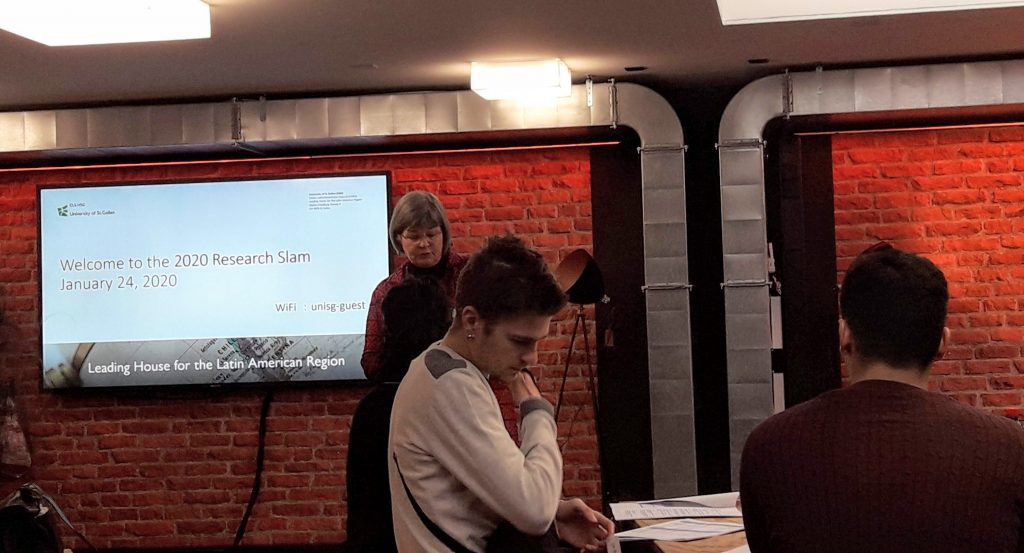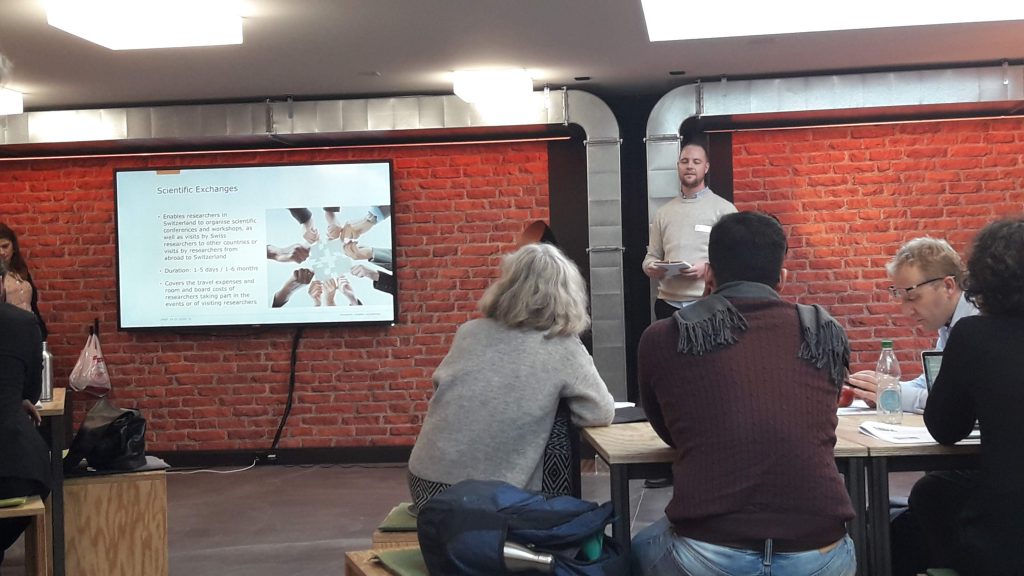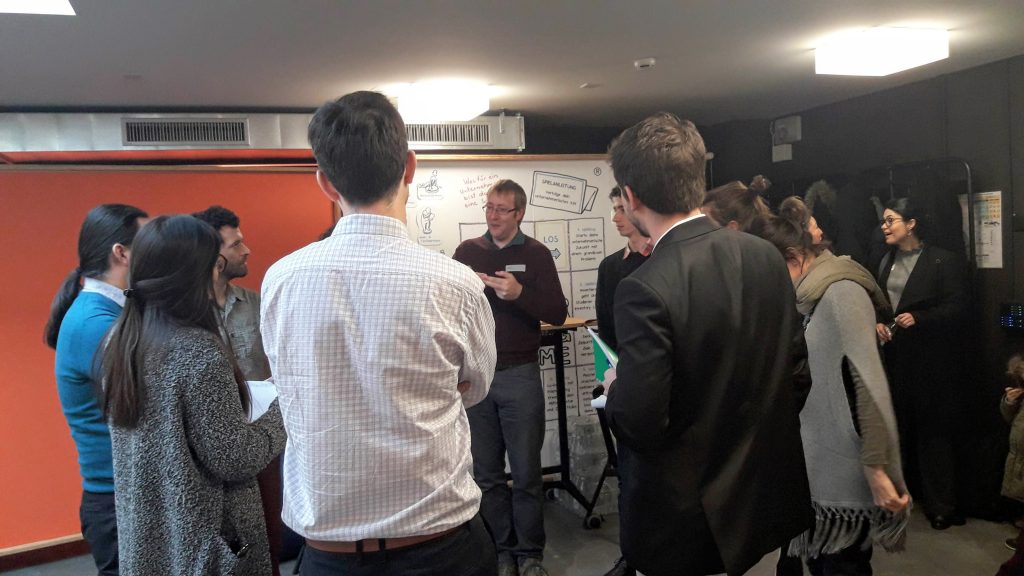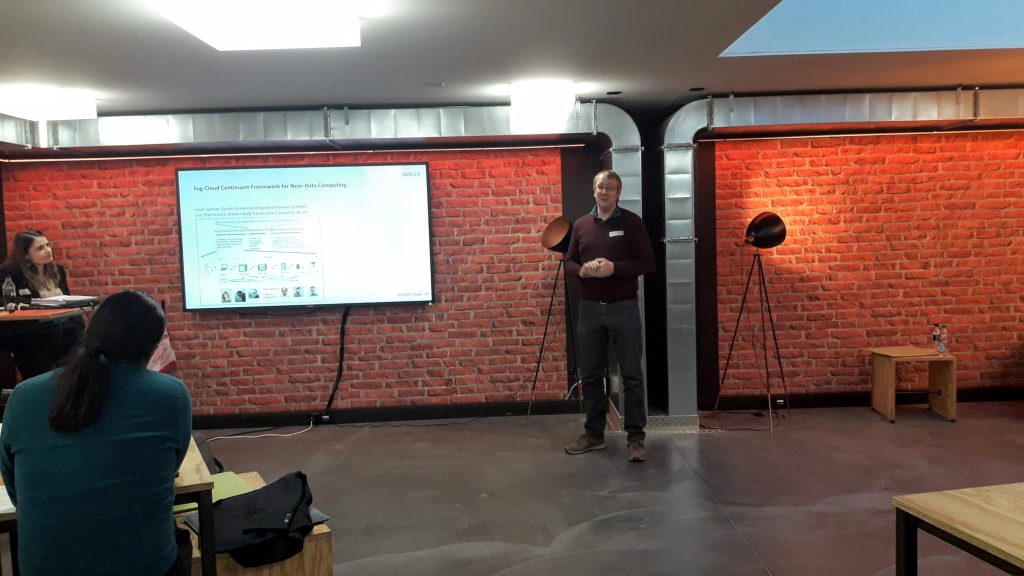The University of St. Gallen, through its Latin-American-Swiss Center (CLS-HSG), is the Leading House for the Latin American region, granting incentives and developing joint research cooperation projects with numerous Latin American countries. One of the grant recipients is the Service Prototyping Lab at Zurich University of Applied Sciences, bringing programmability to fog-cloud continuum computing with its parters from UNICAMP in Brazil. In this blog post, a recent research slam featuring this and other chosen projects is summarised.

On January 24, the Leading House organized the 2020 Research Slam, an event where awardees of One-year Research Mergers, Seed Money and Mobility Grants had a chance to present their projects.
After a short introduction from the organizers and representatives of St. Gallen Institute of Management in Latin America (GIMLA) and the Swiss State Secretariat for Education, Research and Innovation (SERI), the Slam was officially started. Projects of a wide variety of disciplines were presented, including, but not limited to, Bussiness Administration, Sociology, Earth Sciences, Engineering, IT, Medicine and Biology. Some of them, pertaining to the 2017 and 2018 grants, focused on their accomplished goals and project follow-ups. The 2019 grants, on the other hand, presented their current status and their next actions.

During the next part of the event, the funding agencies Innosuisse, SNF, Swissuniversities and Swiss Network for International Studies all took a turn to present their current programs and answer questions. Afterwards, participants were separated into groups to do a plenary session, and discuss about grants, sustainability and funding opportunities, giving feedback to the Leading House and the funding institutions.

Later, a teaser for the upcoming “English for Grant Writing Workshop” by the University of St. Gallen was done, followed by its corresponding invitation.
Finally, the most recent project grants were presented. Most projects have a clear geographic or sociologic perspective such as particular urban situations in South America.
For computer science, this is not necessarily the case. One of the grantees is the Service Prototyping Lab’s “Fog-Cloud Continuum Framework for Near-Data Computing” in cooperation with the Institute of Computing of the State University of Campinas, in the state of São Paulo, Brazil. This project will explore the challenges around the programmability of applications whose parts are deployed to different environments, including multiple device, fog, edge and cloud platforms. Going beyond current cloud-native trends, keeping the ease of use of programmable infrastructure/infrastructure-as-code while being able to exploit different characteristics (latencies, capacities, prices) of the platforms will be a game changer in how software applications are delivered to customers. Current practice is that the software developer has to manually decompose applications, without any inherent liquidity that would make software parts (e.g. microservices) flock to the infrastructure or platform parts that are most suitable in any given context. Simple APIs in conjunction with knowledge about the behaviour of software and target platforms appear to be a way out of the dilemma. At SPLab, we are happy to be able to work on solving the associated technical challenges and will report on the progress in the coming months.

We thank the Leading House for hosting the event and providing a space where researchers of multiple fields could meet and share their projects and experiences, and we look forward to keep collaborating with Latin American institutions on future projects.